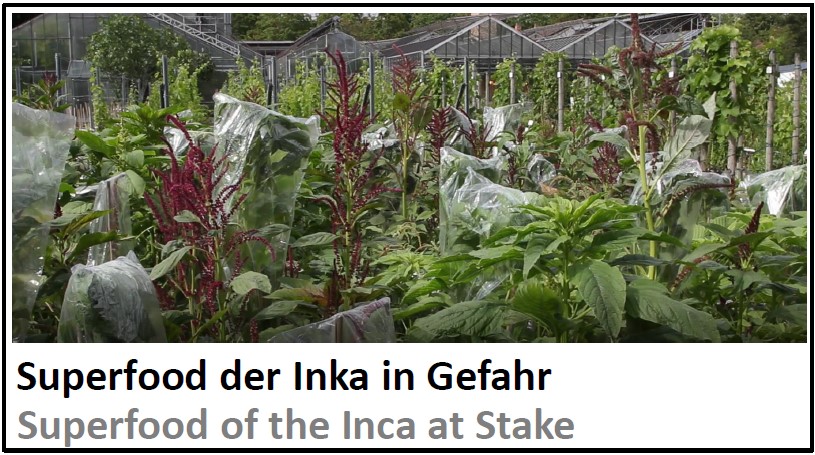2022_05 Kiwicha at Stake
 |
What was the question behind this study? The true Peruvian Amaranth (A. caudatus), also known as Kiwicha, has not been as intensively used for breeding as its Mexican sisters that dominate international trade. However, kiwicha provides several nutritional benefits, such as a higher content of antioxidants and a higher content of the amino acid lysine, often underrepresented in plant proteins. To safeguard these valuable traits and develop them further, seed authenticity is crucial. However, many growers in Peru do not even know about the differences between Amaranth species and often use imported seeds, what erodes the authenticity of kiwicha. What did we find out? Based on a cooperation with the University of Hohenheim and the University of Cuzco in Peru and our Amaranth collection established in our Botanical Garden we succeeded to develop a PCR-based gene test to detect fake kiwicha reliably and rapidly. The project was funded by the EU-Cornet programme and field studies in Peru demonstrated that this test is urgently needed - exactly here, where the superfood of the Inca originated, Amaranth imported from North America becomes widespread. more... What can we do with this knowledge? There are two applications - one approach is to support Peruvian authorities to secure the authenticity of kiwicha by testing quality and identity of seeds, as it is common here for decades. On the other hand, the test can be used to verify imported Amaranth and to protect the valuable Peruvian kiwicha with its promising nutritional benefits against surrogates, especially from West Africa and India. Publication 182. Kanbar A, Beisel J, Wetters S, Gutierrez MT, Graeff-Hönninger S, Nick P (2022) A rapid, simple, and reliable assay to authenticate Peruvian kiwicha (A. caudatus) for food applications. Eur J Food Res Technol 248, 2779–2797 - pdf
|
